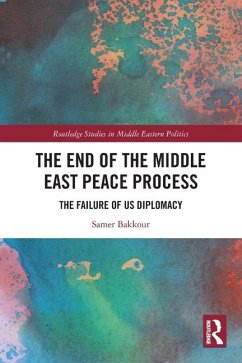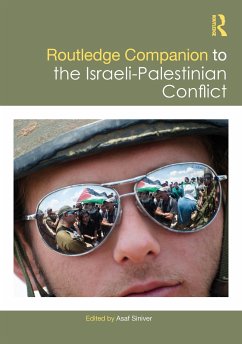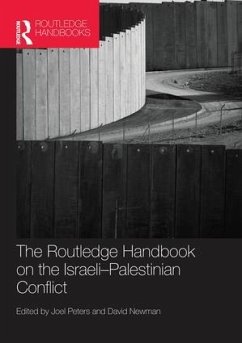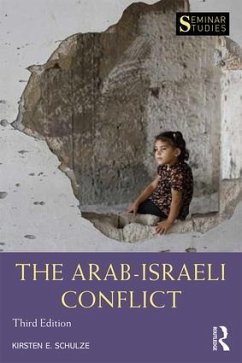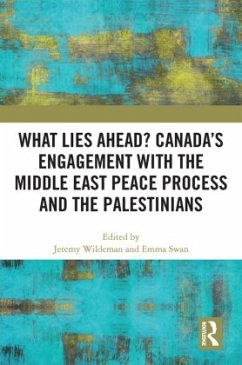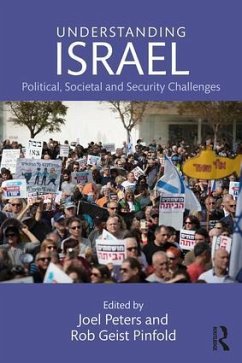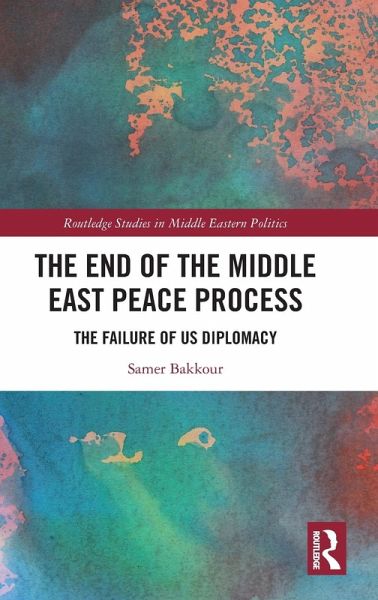
The End of the Middle East Peace Process
The Failure of US Diplomacy
Versandkostenfrei!
Versandfertig in 6-10 Tagen
154,99 €
inkl. MwSt.
Weitere Ausgaben:

PAYBACK Punkte
77 °P sammeln!
Presenting the Middle East peace process as an extension of US foreign policy, this book argues that ongoing interventions justified in the name of 'peace' sustain and reproduce hegemonic power.With an interdisciplinary approach, this book questions the conceptualisation and general understanding of the peace process. The author reinterprets regional conflict as an opportunity for the US through which it seeks to achieve regional dominance and control. Engaging with the different stages and components of the peace process, he considers economic, military and political factors which both change...
Presenting the Middle East peace process as an extension of US foreign policy, this book argues that ongoing interventions justified in the name of 'peace' sustain and reproduce hegemonic power.
With an interdisciplinary approach, this book questions the conceptualisation and general understanding of the peace process. The author reinterprets regional conflict as an opportunity for the US through which it seeks to achieve regional dominance and control. Engaging with the different stages and components of the peace process, he considers economic, military and political factors which both changed over time and remained constant. This book covers the US role of mediation in the region during the Cold War, the history and present state of US-Israel relations, Syria's reputation as an opponent of 'peace' compared with its participation in peace negotiations, and the Palestinian-Israel conflict with attention to US involvement.
The End of the Middle East Peace Process will primarily be of interest to those hoping to gain an improved understanding of key issues, concepts and themes relating to the Arab-Israeli conflict and US intervention in the Middle East. It will also be of value to those with an interest in the practicalities of peacebuilding.
With an interdisciplinary approach, this book questions the conceptualisation and general understanding of the peace process. The author reinterprets regional conflict as an opportunity for the US through which it seeks to achieve regional dominance and control. Engaging with the different stages and components of the peace process, he considers economic, military and political factors which both changed over time and remained constant. This book covers the US role of mediation in the region during the Cold War, the history and present state of US-Israel relations, Syria's reputation as an opponent of 'peace' compared with its participation in peace negotiations, and the Palestinian-Israel conflict with attention to US involvement.
The End of the Middle East Peace Process will primarily be of interest to those hoping to gain an improved understanding of key issues, concepts and themes relating to the Arab-Israeli conflict and US intervention in the Middle East. It will also be of value to those with an interest in the practicalities of peacebuilding.





